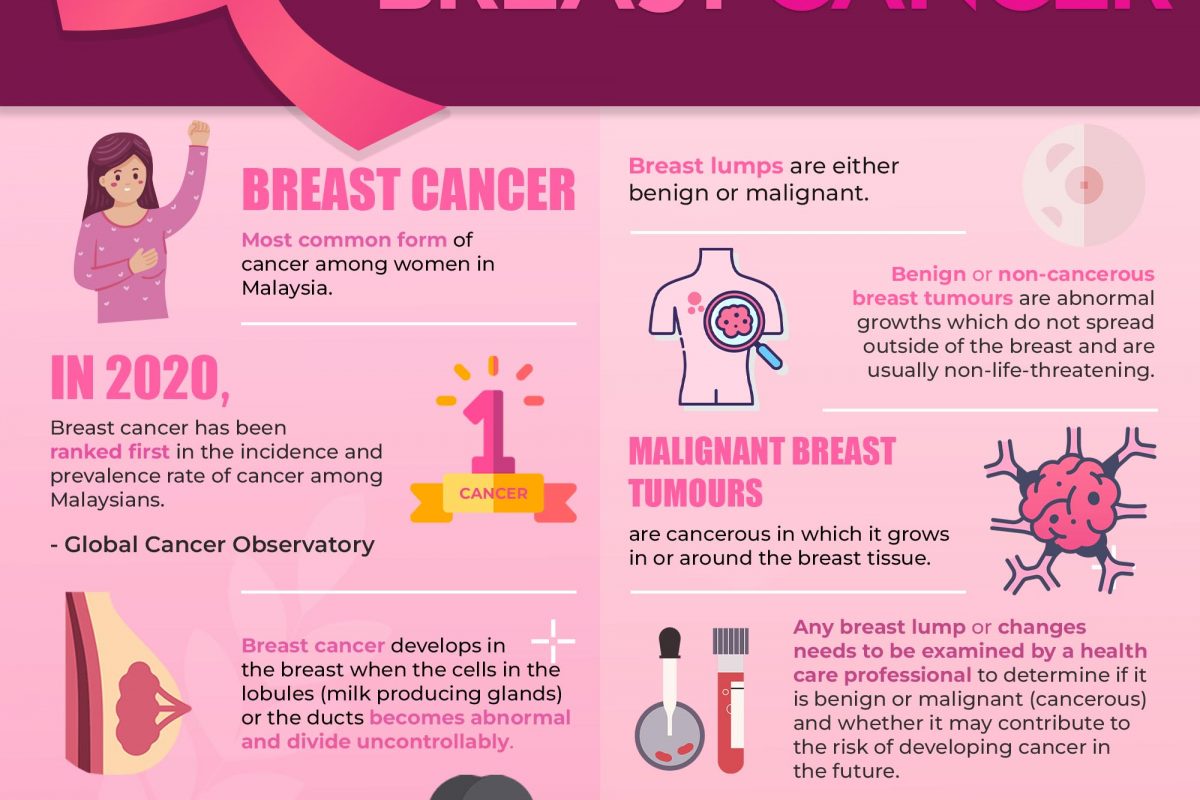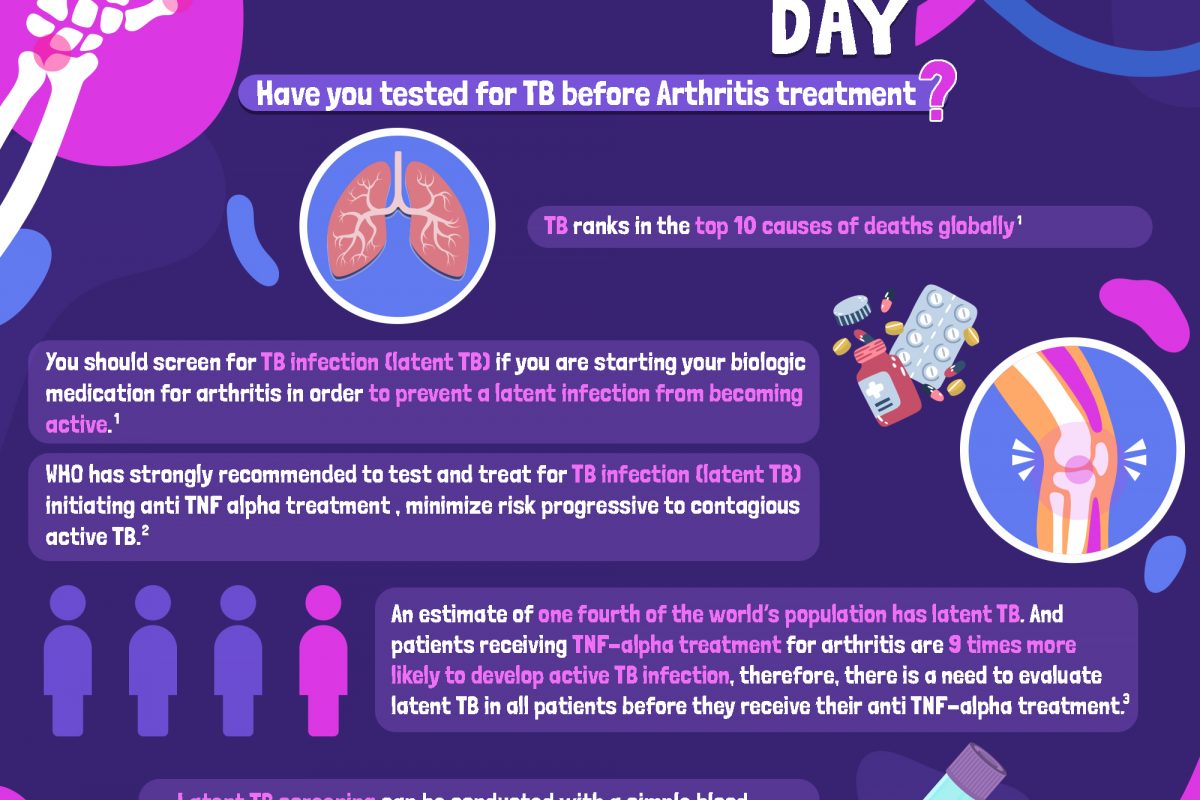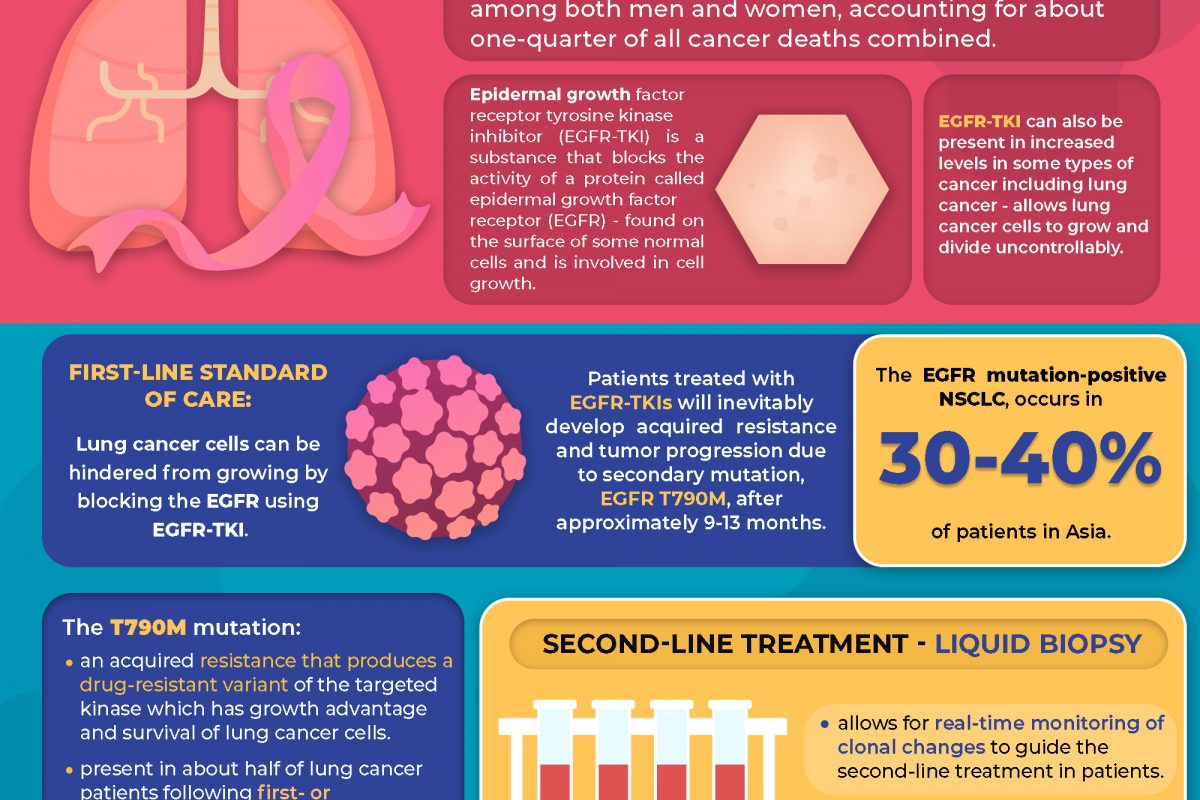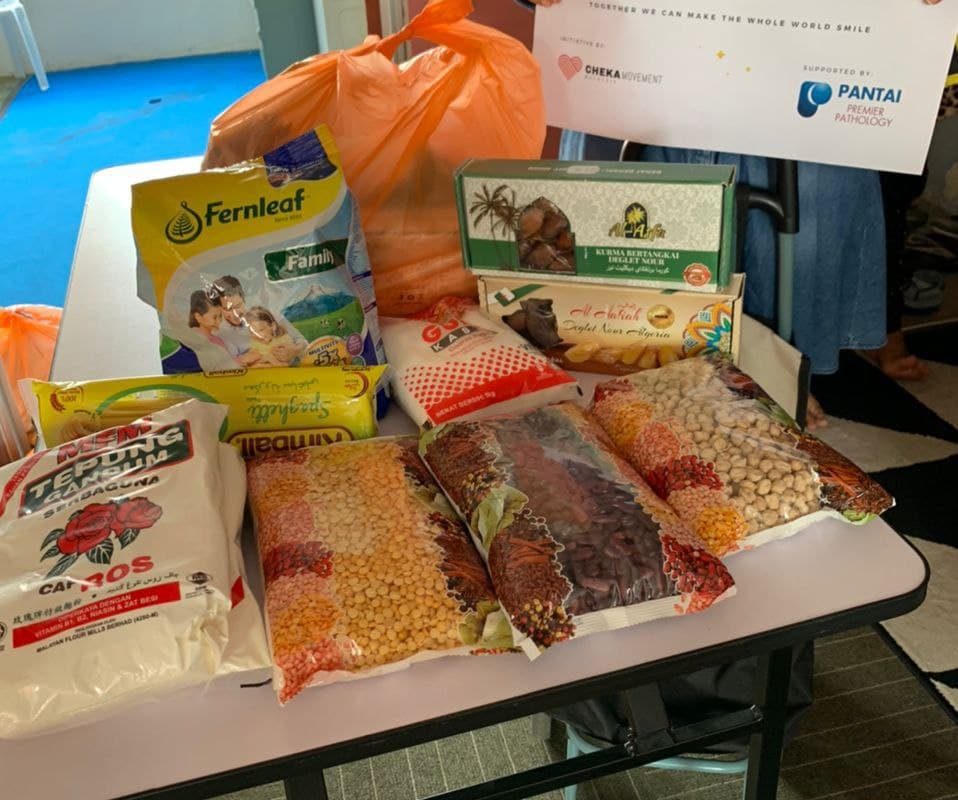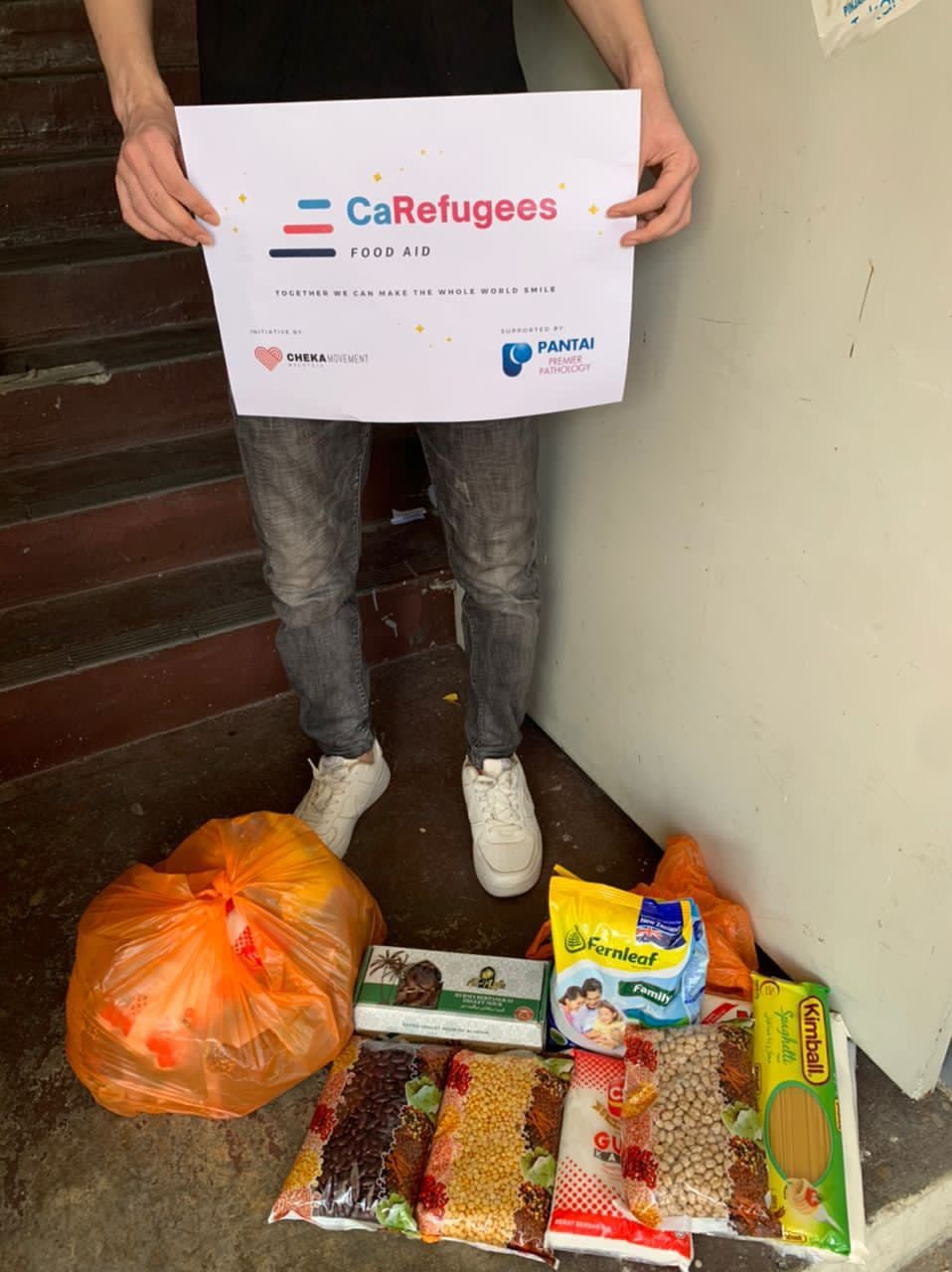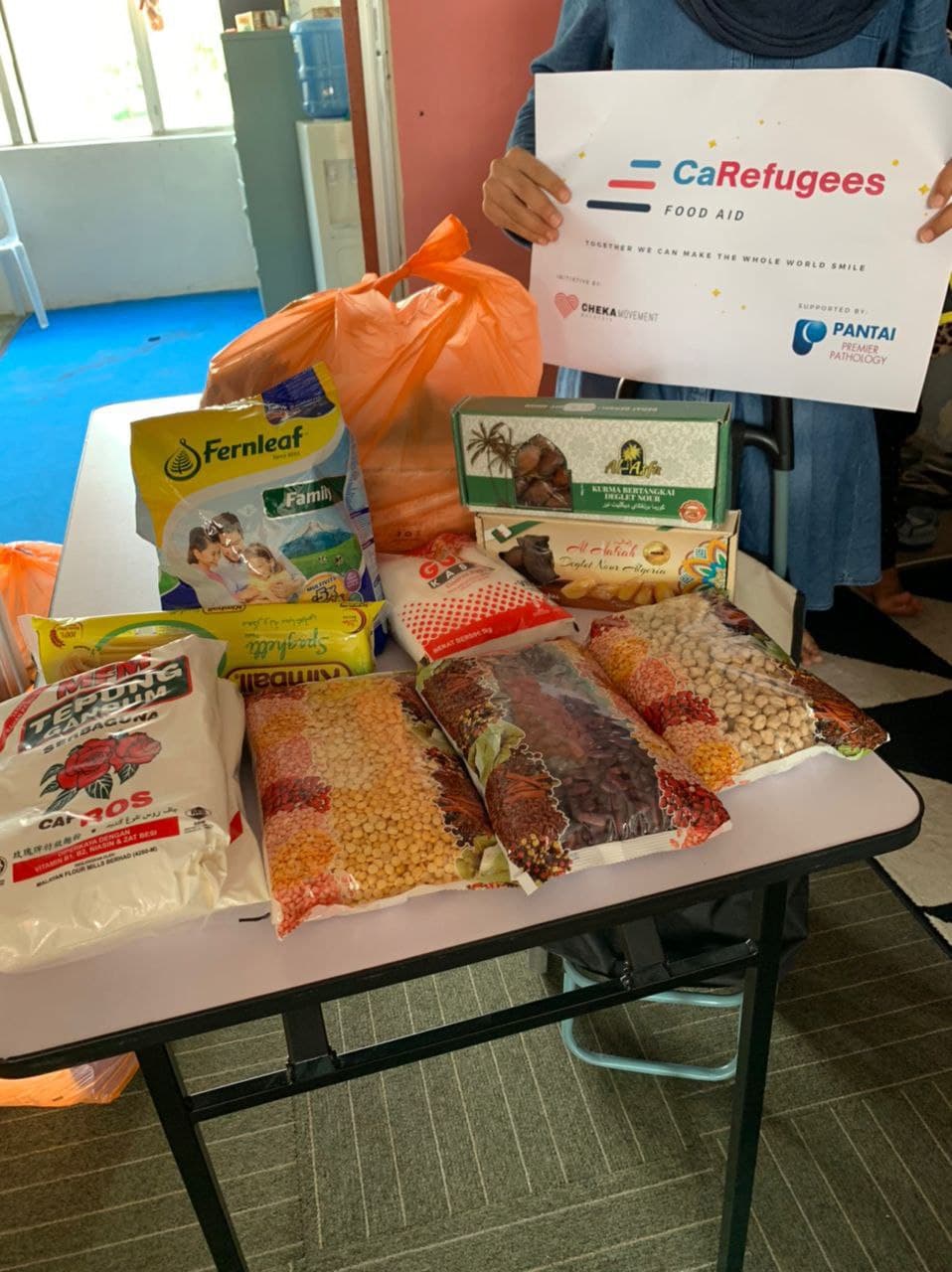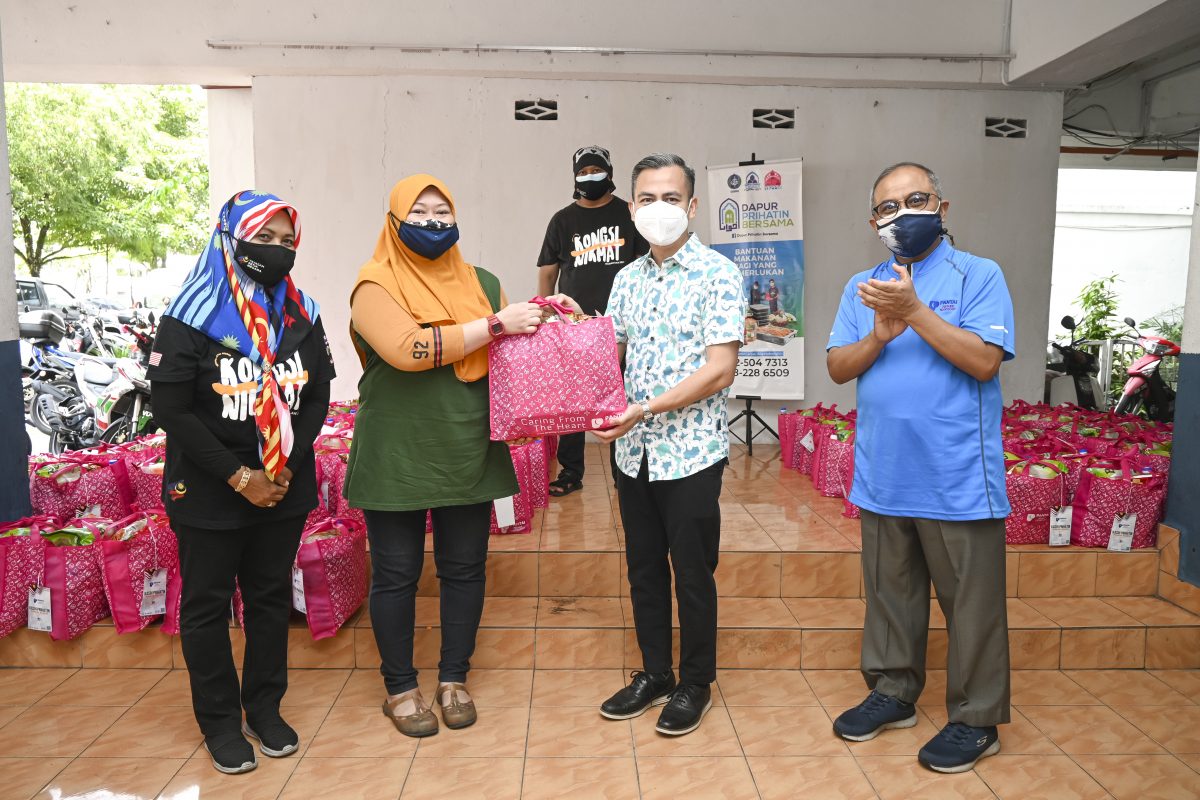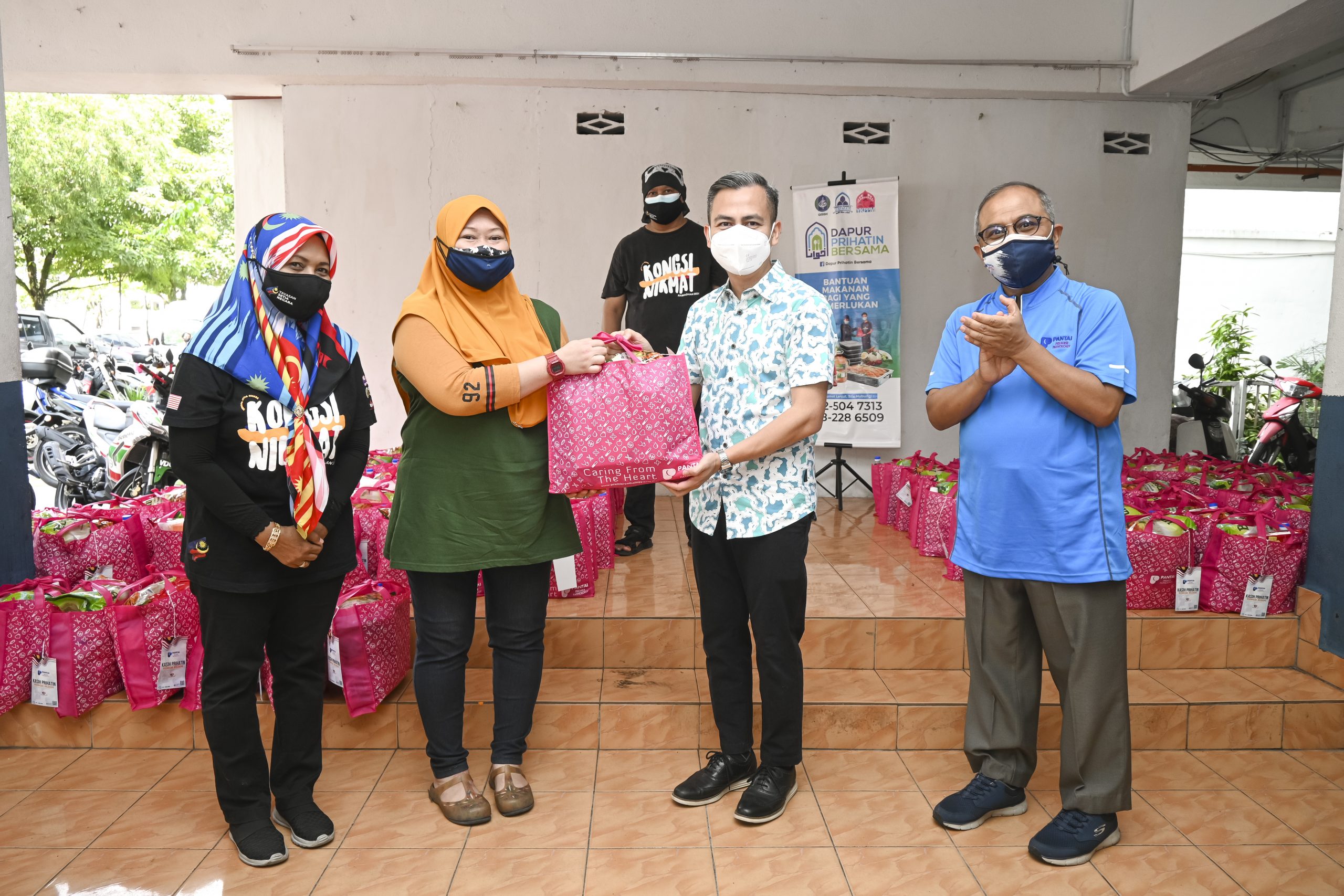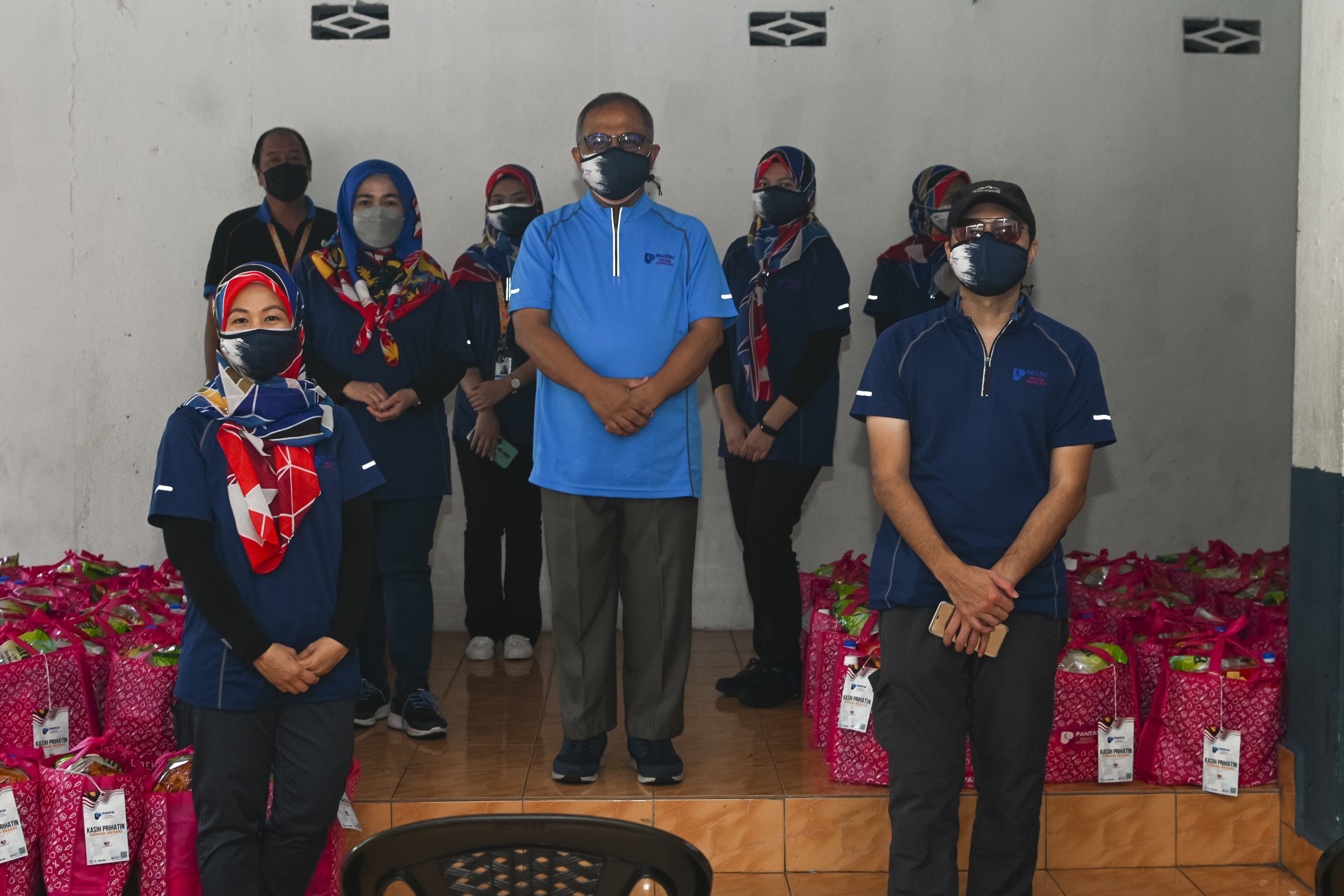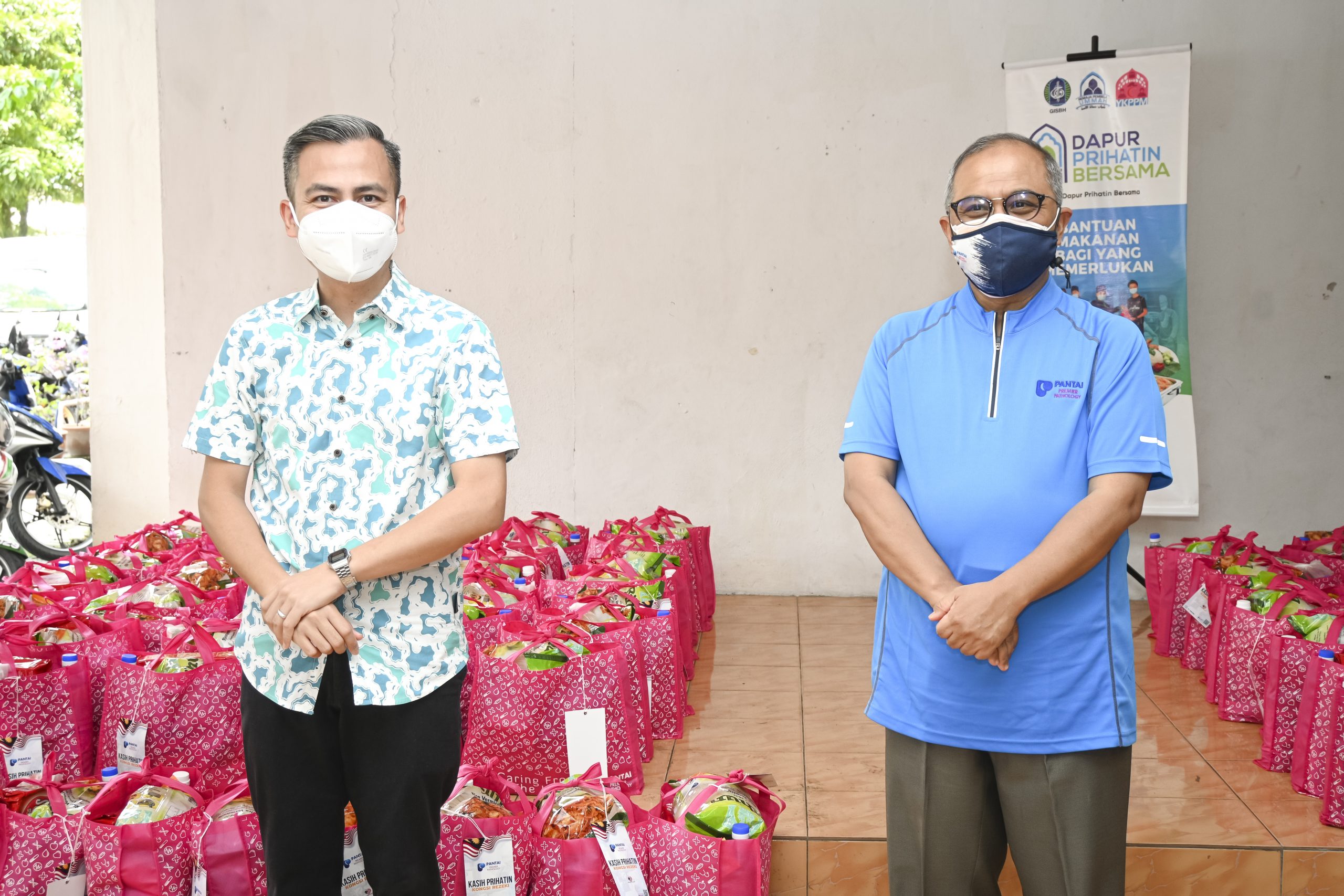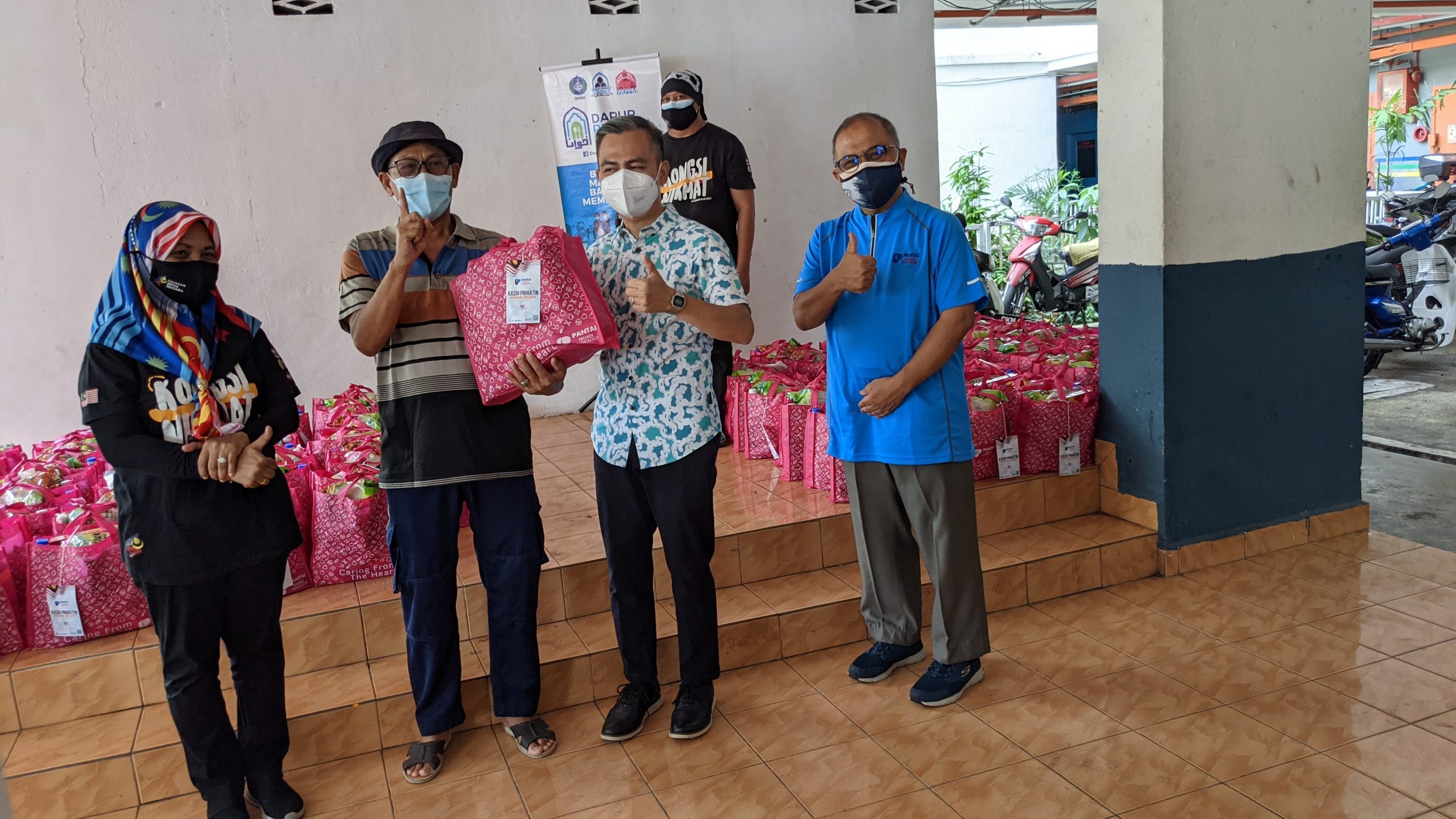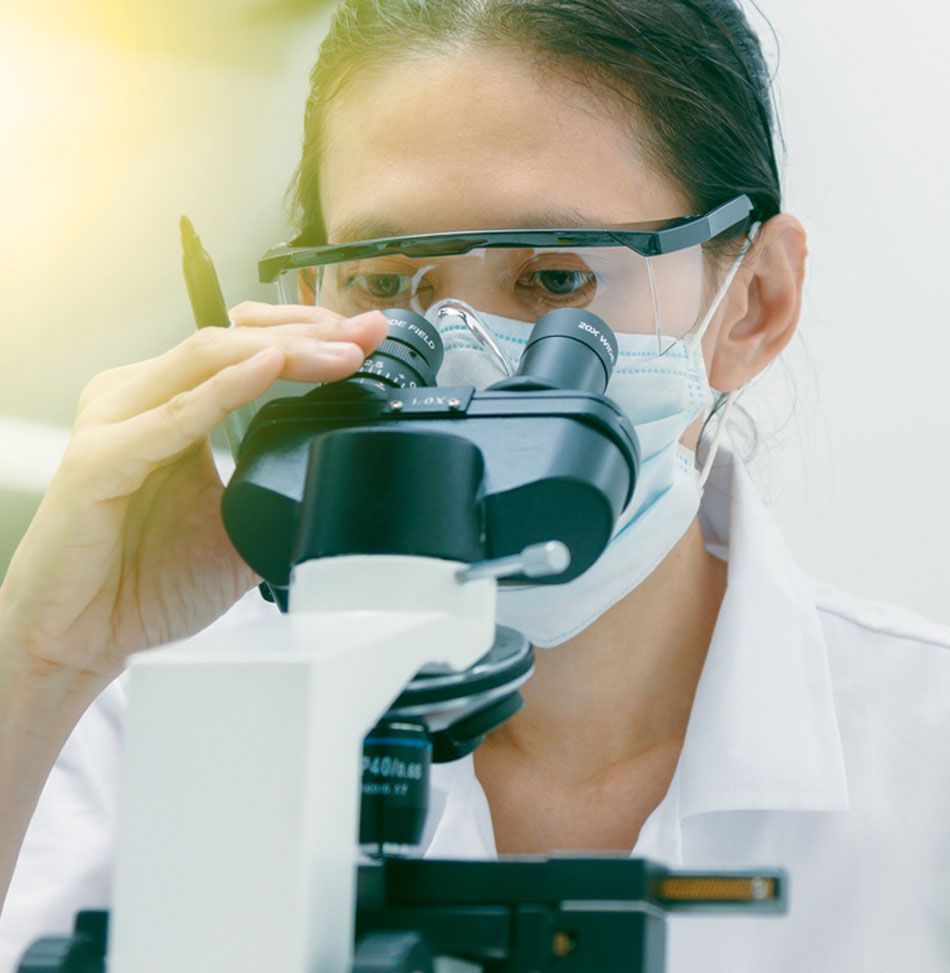Treatment Planning for Breast Cancer
Breast cancer is the most common form of cancer among women in Malaysia. According to the Statistics report made by Global Cancer Observatory in 2020, Breast cancer has been ranked first in the incidence and prevalence rate of cancer among Malaysians.1 In addition, Chinese women in Malaysia seemed to be at the greatest risk among breast cancer patients, with and incidence rate of 40.7 per 100,000 population; followed by Indian women (38.1 per 100,000) and Malay women (31.5 per 100,000), as reported by Malaysia National Cancer Registry Report 2012-2016.2, 3
Breast cancer is a type of cancer that develops in the breast when the cells in the lobules (milk producing glands) or the ducts becomes abnormal and divide uncontrollably. Breast cancer cells typically would form a tumour that can be seen on an x-ray or felt as a lump. It occurs almost entirely in women, but men can get breast cancer too.4, 5
It is important to understand that most breast lumps are benign and non-cancerous. Non-cancerous breast tumours are abnormal growths which do not spread outside of the breast and are usually non-life-threatening. However, some types of benign breast lumps are able to increase the incidence risk of woman getting breast cancer. Any breast lump or changes needs to be examined by a health care professional to determine if it is benign or malignant (cancerous) and whether it may contribute to the risk of developing cancer in the future.4
As with most cancers, the earlier the breast cancer is detected and diagnosed, the better the chances for a successful treatment. The treatment for breast cancer depends on the diagnosis which includes local treatment that comprises of surgery and radiotherapy or an adjuvant therapy (additional to surgery) that comprises of combinations of radiation therapy, hormone therapy, targeted therapy, or biological therapy.
Learn about the different types of treatments available for your cancer by seeking your consultants for a better understanding and to make an informed choice about your treatment options. Most importantly, remember to be positive and to lead a normal life after your breast cancer treatment. Cancer is not the end, but the beginning of a new life with proper treatment!
Treatment recommendations are tailored and personalized and depends on several factors such as stage of the tumour, tumour’s subtype, genomic markers, patient’s age, patient’s menopausal status, the presence of BRCA1 or BRCA2 mutations. Some of the test for breast cancer that can help your specialists to make informed decisions which can be done at PPP are BRCA1&2, HER2 FISH, Homologous Recombinant Repair (HRR), PIK3CA Test and more.
For more information on the tests provided, please contact us at +603-42809115 (Customer Service) or email us at info@premierpathology.com.my
References:
- International Agency for Research on Cancer. (2020). Malaysia. [Fact Sheet]. World Health Organization (WHO) https://gco.iarc.fr/today/data/factsheets/populations/458-malaysia-fact-sheets.pdf
- Cancer Cases Rise In Malaysia, Chinese Most Prone. (2020, January 3). Code Blue. https://codeblue.galencentre.org/2020/01/03/cancer-cases-rise-in-malaysia-chinese-most-prone/
- Ministry of Health Malaysia. (2019, June). Malaysia National Cancer Registry Report 2012–2016 (No. 5). National Cancer Registry, NCI. https://drive.google.com/file/d/1BuPWrb05N2Jez6sEP8VM5r6JtJtlPN5W/view
- What Is Breast Cancer? (2018, September 18). American Cancer Society. https://www.cancer.org/cancer/breast-cancer/about/what-is-breast-cancer.html

